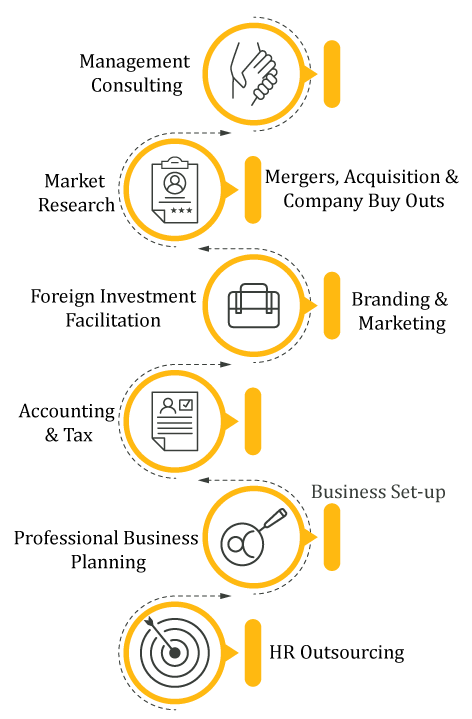Investment Opportunities in Ethiopia
Investment Opportunities in Ethiopia
Investment Opportunities in Ethiopia – Ethiopia is Africa’s oldest independent countries in Africa and also the 2nd most populous with over 105 million people. It was also identified by the World Bank Global Economic Prospects as one of the fastest growing economies in the world with an average of about 11% annual GDP growth for the last 14 years.
Ethiopia’s main exports include: Coffee, Oil seeds, Leather and Leather Products, Pulses, Meat and Meat products, Fruits, Vegetables, Live Animals, Gold, Flowers and Electricity. The major export destination of Ethiopian products includes: Europe at 34 %, America at 7%, Africa at 20%, and Asia at 37 %.
Ethiopia’s main imports include the following: Fertilizers, Fuel, Petroleum Products, Capital Goods, and Consumer Goods. Import origins are as follows: Asia at 62%, Europe at 25%, America at 8%, and Africa at 4%.
The tax regime in Ethiopia is quite straight forward with the tax rate for personal Income ranging from 0 to 35 %, while corporation tax is at 30% and VAT at 15%.
Global Stakeholders and Foreign Direct Investors have their eye on Ethiopia for the following reasons:
- Social and political stability
- Youth potential and trainable labor force with over 70% of the population under 30
- Growing economy
- Excellent climate and fertile soils
- Strong investment guarantees and protection
- Regional hub with access to wide market
- Improved economic infrastructure
- Competitive incentive packages
- Government commitment
Strategic Investment Opportunities in Ethiopia Open for Foreigners include the following;
- Agriculture and horticulture
Ethiopia offers one of the largest and most diverse agricultural investment opportunities in the continent. It sits on about 115.5 million hectares of land out of which 74.3 million hectares is suitable for agriculture. 18 major ecological zones have been identified in the country and over 3million hectares of land has been made available for investment.
Furthermore, availability of water and favorable climate has made agricultural investment much easier. Ethiopia is at a strategic position at the Horn of Africa is at the crossroads between Africa, the Middle East, and Europe. Within easy reach of the Horn’s major ports, Ethiopia is close to its traditional markets for export products – the Middle East and Europe.
Horticulture is the fifth foreign revenue earner for Ethiopia and creates over 180,000 jobs out of which 85% are for women.
- Manufacturing
The manufacturing sector in Ethiopia contributed about 13 percent to GDP growth between 2009 and 2010. Ethiopia’s Growth and Transformation Plan II aims to bring significant growth in the manufacturing industry so that it plays a leading role in job creation, technology learning structural shift in Ethiopia’s export sector and address trade imbalance.
The government’s strategy for this mainly focuses on the implementation of project programs which gear towards attracting quality investment, enhancing production and productivity, boosting export shares, improving and accelerating technological learning and strengthening investment links among industries.
Priority areas of investment, according to the government include:
- Light manufacturing (textile and garment, leather, agro-industry, electronics)
- Basic and import substitution as well as export (steel, equipment, chemical, and pharmaceutical)
- Strategic (energy, ICT, and biotechnology)
- Tourism
Ethiopia has a unique historical and cultural heritage. It is known worldwide for being the origin of mankind and one of the oldest civilizations, and as the source of the mighty River Nile. The cool climate and magnificent scenery rich flora and fauna and important archaeological sites make it a key tourist destination in Africa. Its wealth of tourist attractions gives it great potential for both cultural and educational tourism, as well as photo safaris, hunting safaris, bird watching and water sports.
Addis Ababa is also significant as the political capital of Africa and brings high representation of international and regional organizations, including the seat of the African Union and the United Nations Economic Commission for Africa. It sharpens Ethiopia’s potential for business tourism.
- Mining
According to the Ministry of Mines and Petroleum, Ethiopia has a substantial deposit of gold, tantalum, platinum, nickel, potash and soda ash. For construction and industrial purposes, important minerals are marble, granite, limestone, clay, gypsum, gemstone, iron ore, coal, copper, silica, diatomite, etc. Ethiopia also has geothermal and fossil energy resources, oil and natural gas exploration currently under development.
Mining is important as a diversification from agriculture and only comprises 1% GDP. Because of this the government is encouraging domestic and foreign investment in mining for the country’s export-oriented growth strategy in this sector for the greater economic growth.
- Power
Ethiopia’s power and hydropower industry provides ample potential for investment. Ethiopia is the second largest populated country in Africa with potential increase per year. Such increase in size will result in an increase in the number of people requiring access to electricity. There is also an industrialization agenda that will drive power demand, given the numerous industrial parks that will require plenty of megawatts to operate.
The potential of Ethiopia’s renewable and nonrenewable energy resources is large, with the feasible hydropower potential estimated at 45,000 MW. It has potential for geothermal energy generation and has nine of its major rivers suitable for hydroelectric power generation.
The government has set power generation and connection targets and sees the private sector and foreign direct investment as pivotal in meeting intended targets through participating in electricity generation from any source and without any capacity limit.
- Leather and Leather Products
Leather is one of the leading industries in Ethiopia. Ethiopia is currently exporting finished leather and leather shoes. There is a growing potential for export on handbags and small leather accessories such as gloves.
More than 75 domestic and foreign leather and leather product factories have invested in Ethiopia. It is interesting to note that Ethiopia has a cattle population of approximately 56.7 million; the largest livestock population in Africa and 9th in the world. Consequently, the country has a strong raw material base for the leather industry.
- Textiles and Garments
Ethiopia’s textile and garment industries are growing rapidly as a number of domestic and international firms are engaging in the production of textile and apparel for domestic and global markets. This surge in Ethiopia’s textile and apparel production and subsequent export to the global markets shows that the country has the potential to become one of the leading textiles and apparel hubs in Africa.
- Pharmaceuticals
Given the current population in Ethiopia and its expected growth per year there will be an increase in demand for pharmaceutical products. Ethiopia also has an average economic growth of over 10% per year and the expected increase in disposable income will influence spending on pharmaceutical products. There have been promising health coverage improvements, both in urban and rural areas, which is a driving force of market growth for the pharmaceutical sector.
Pharmaceutical manufacturing is a priority sector of the government. Ethiopia’s goal is to become a pharmaceutical manufacturing hub by 2025; the first country in Africa to establish a national strategy for pharmaceutical sector development.
- Construction
Ethiopia is a rapidly developing country that undergoes though numerous construction activities. The country provides a wide range of opportunities in the construction industry, particularly in construction of roads, residential, commercial and industrial buildings, including low-cost housing. Ethiopia has invested on the largest social housing project in Africa in the last decade and private construction companies have played crucial roles. Foreign Investors have injected massive investment into educational infrastructure and health care facilities.
Investment opportunities exist in the areas of General Contractor Grade One (GC1), Building Contractor Grade One (BC1), Road Contractor Grade One (RC1), Specialized Contractor Grade One (GC1), Water Well Drilling, and Construction Machinery and Equipment Rental Services.
Other Investment Sectors
There are other smaller but essential investment sectors open to foreign investors. These are:
- Social services.
- Health services: This is in the sectors of general and specialized clinics, general and specialized hospitals, clinical laboratories and diagnostic centers.
- Educational services: Ethiopia invites internationally reputable educational institutions including universities and training centers to invest in the country. Opportunities for investment in the educational service exist in the kindergarten, primary and secondary schools, science and technology colleges/universities, business colleges, medical science schools, ICT institutions, vocational training centers, including those for hospitality services.
We offer consultation on how to set up in any of the industries above and we can help you set up your company in Ethiopia without a hitch. Contact us Today and find out how you can invest in Ethiopia.






